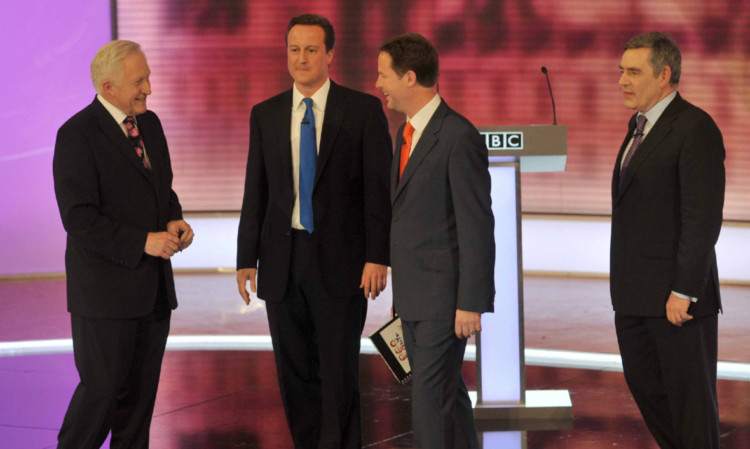Today was to have seen the first of the great sparring matches between the two leaders fighting for Scotland’s future. July 16 was the date proposed by STV for Alex Salmond and Alistair Darling to go head to head in front of a live television audience and an expectant nation.
But as with everything in the long drawn-out battle for independence, the two sides came to blows. There was a dispute, some name-calling and pressure brought to bear. Mr Salmond’s preferred foe was the Prime Minister, David Cameron; Mr Darling favoured a showdown before the Commonwealth Games, Mr Salmond afterwards.
Now, at last the debate about the debate has been exhausted and, as announced last week, August 5 has been settled on by both parties. If you haven’t anything more distracting to do on a summer’s evening, you can tune in to two hours of political point-scoring, beamed into your sitting rooms from the Royal Scottish Conservatoire in Glasgow unless you are one of the lucky 350 invited guests.
With just under three weeks to go, the combatants will be closeted with their teams of advisers, rehearsing their arguments and steeling themselves for round one. (Further bouts are planned in the countdown to the referendum, courtesy of the BBC and Sky).
Huge significance is attached to the event and much will be made of the individual performances of the two men, their joint appearance almost as eagerly anticipated as Rod Stewart’s at the Commonwealth opening ceremony.
But when all is said and done, do these TV set pieces really matter? Will undecided voters form their opinions on the night? Will those who know their minds be persuaded to change them? Do people base so big a decision on what is, in truth, stage-managed entertainment?
To answer these questions we only need look at previous televised spats on the eve of elections. Barring a disaster of Richard Nixon proportions, they tend to make no difference to the end result.
Nixon was considered to have botched his initial shot at the White House when he appeared shifty and uncomfortable before the cameras beside a cooler Jack Kennedy. But that was back in 1960, when public exposure was limited, and not every politician was media-trained tele-fodder.
Seasoned pros such as Mr Salmond and Mr Darling are unlikely to come unstuck. And if one man gains the upper hand, the other’s team will claim victory, anyway, and vice versa; the most probable outcome will be a score draw.
My money is on the unflappable persistence of the former chancellor, rather than the over-estimated (not least by himself) debating swagger of the First Minister. But I would say that.
Even if a range of completely objective commentators agreed there was an obvious winner, it still wouldn’t alter the vote on September 18.
In the last general election, Nick Clegg was widely perceived to have got the better of David Cameron and Gordon Brown in their television debates. But while Mr Clegg raised his personal profile, his party lost seats. The fact the Liberal Democrats ended up in coalition government was more by default than design. In Scotland in 2011, Annabel Goldie outshone the lacklustre competition of the SNP, Labour and Lib Dems but made little impact on the electorate and the Scottish Conservatives came a poor third at the ballot box.
Mr Salmond has the most to prove on August 5, with his Nationalists trailing in the polls. He will polish up his put-downs and, when the day comes, no doubt make more of the promises that have so far failed to impress a majority of voters.
He did not want to take on Mr Darling; he can’t play the patriotic Scot card with him, as he might have done opposite Mr Cameron, and he can’t come the elder statesman against such an opponent. But having accused the Better Together of the “heebie jeebies”, he can now hardly wriggle out of the confrontation and must grit his teeth and get on with it. And Mr Darling, in less need of a televised triumph, can’t escape, either.
They will just have to slug it out and we might as well sit back and enjoy the spectacle.
